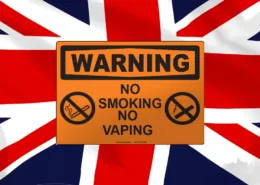India Researchers Call for Re-evaluation of Vape Ban
Researchers from the prestigious All India Institute of Medical Sciences (AIIMS), Delhi, have called for the Indian government to re-evaluate its complete ban on electronic nicotine delivery systems (ENDS), commonly known as e-cigarettes or vapes. In a commentary published this month in the JCO Global Oncology, oncologists Dr. Abhishek Shankar and Dr. Vaibhav Sahni argue that a total prohibition, as enacted by India’s 2019 Prohibition of Electronic Cigarettes Act (PECA), may be counterproductive and that a regulated, evidence-based approach should be considered.
The researchers contend that a complete ban on these products “can (and has) routed demand towards illicit marketing.” They point to the e-cigarette and vaping-associated lung injury (EVALI) outbreak in the United States as an example of the harms that can arise from unregulated products obtained from informal sources. Despite India’s ban on the sale, storage, and manufacture of these devices, they note that ENDS remain widely available for sale at local shops and through online platforms, which often fail to verify the purchaser’s age.
In contrast, the commentary highlights the United Kingdom’s more pragmatic, harm reduction-based policy. Backed by Public Health England, the UK has adopted e-cigarettes as smoking cessation tools, recognizing them as significantly less harmful than combustible tobacco. The AIIMS researchers cite evidence, including a 2022 Public Health England update, which found vaping to be associated with only a minor fraction of the risk of conventional smoking in the short to medium term, while still acknowledging that vaping is not risk-free, especially for non-smokers.
Dr. Shankar and Dr. Sahni argue that e-cigarettes with nicotine have been demonstrated to help people quit smoking, with data supporting elevated quit rates compared to no treatment or usual care. They draw a parallel to the catastrophic results of complete liquor bans in some Indian states, which led to illicit commerce and deaths from consuming spurious products. A ban on ENDS, they suggest, also leads to a loss of potential tax revenue for the administration.
“There certainly appears to be a need for advocating at least a relook into the complete abstinence policy pertaining to ENDS as is being followed by the Government of India,” the doctors recommended. Dr. Shankar told PTI, “ENDS are a form of harm reduction and in a scenario where proven carcinogens such as alcohol and tobacco are not banned and ENDS are being illicitly marketed to never-smoking kids, certainly something like ENDS can be looked at for their cessation benefits with strict legislation and caution.”
Dr. Sahni added, “Since the ban was instituted, evidence has accrued to the extent that a relook into the ENDS policy is warranted.” They believe it is prudent practice to re-examine evidence periodically to ensure public health policies remain current, well-informed, and effective, potentially providing smokers with access to appropriate cessation aids within a proper regulatory framework.
- India Researchers Call for Re-evaluation of Vape Ban - August 9, 2025
- Malaysian Health Minister: Vape Ban is No Longer an ‘If’ - August 9, 2025
- Is It Illegal to Vape or Smoke While Driving in Indiana? - August 9, 2025








